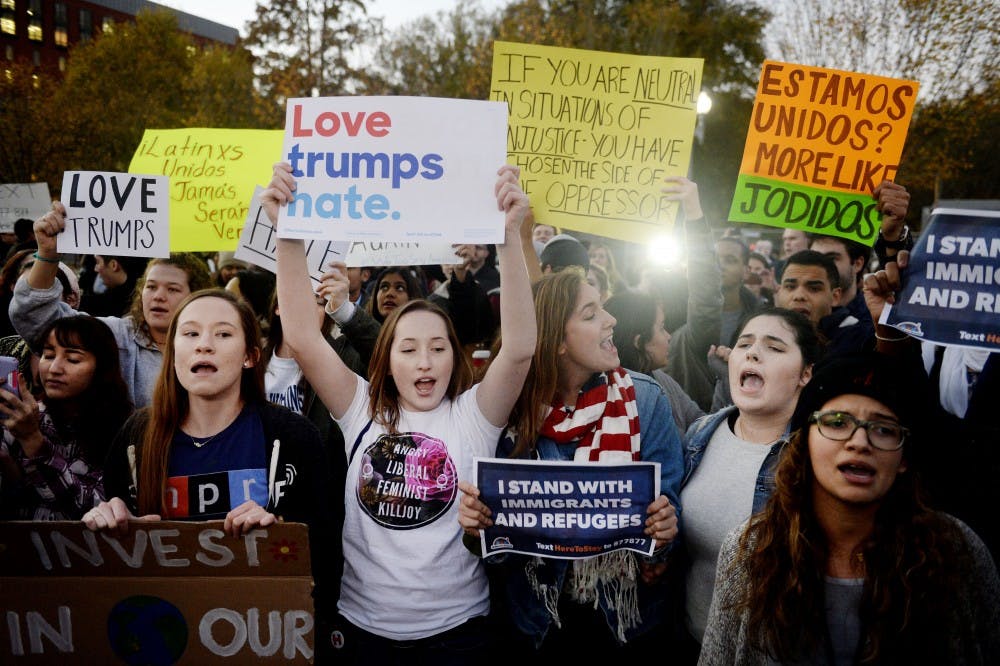Although former Secretary of State Hillary Clinton lost to Donald Trump in the presidential race, many people across the country are outraged, calling for an "abandonment" of the Electoral College, after she received nearly 1 million more popular votes than Trump.
Petitions are springing up across the internet calling for the electors of the Electoral College to abandon the way their states voted and instead vote for Clinton.
One petition on change.org has received almost 4.5 million signatures, and others are growing in signatures, too.
The Electoral College was originally set up by the founding fathers in the constitution. Today, when elections are held, citizens vote for electors.
Each state has a certain amount of electors, and the number in each state is equal to how many representatives the state has in the House of Representatives plus two senators in the Senate. Indiana has a total of 11 electors.
The electors from all states meet later in December to vote for the president of the United States.
The Electoral College was originally established to prevent uneducated citizens of the time from deciding the outcome of the election — many people today now say the Electoral College is “outdated.”
One of those people, Senator Barbara Boxer (D-CA), introduced legislation this week in the Senate that would abolish the Electoral College.
"In my lifetime, I have seen two elections where the winner of the general election did not win the popular vote," Boxer said. “The Electoral College is an outdated, undemocratic system that does not reflect our modern society, and it needs to change immediately.”
In order to abolish the Electoral College, the bill would have to pass in the House of Representatives and Senate with a two-thirds majority. It would then go to the states, where 38 out of the 50 states would have to ratify the bill in order to amend the constitution.
The last amendment to be added to the constitution was the 27th amendment, which officially became a part of the constitution in 1992.
Joseph Losco, director of the Bowen Center for Public Affairs, said while many people are "upset" about the results of the election, it would be “very difficult” to change the Electoral College system.
“Large states will be reluctant to give up the numerical advantage they have,” Losco said. “Small states may be equally reluctant to yield to the will of populations in larger states.”
The last time a candidate won the popular vote but lost the electoral vote was in 2000, when Al Gore ran as the democratic candidate against George W. Bush. The electoral vote and the popular vote have not coincided on five occasions, which means they have, however, coincided over 90 percent of the time.
Regardless of the contention, Losco said he still has confidence in the system.
“That’s not a bad track record," Losco said. "There will will always be disagreements, and that's normal."





